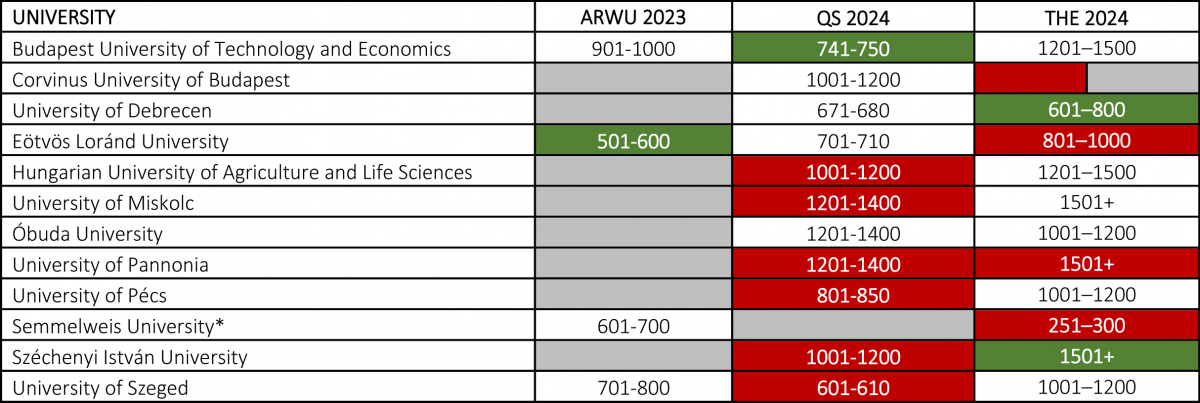Opposition: Hungarian government again pointing fingers at Brussels
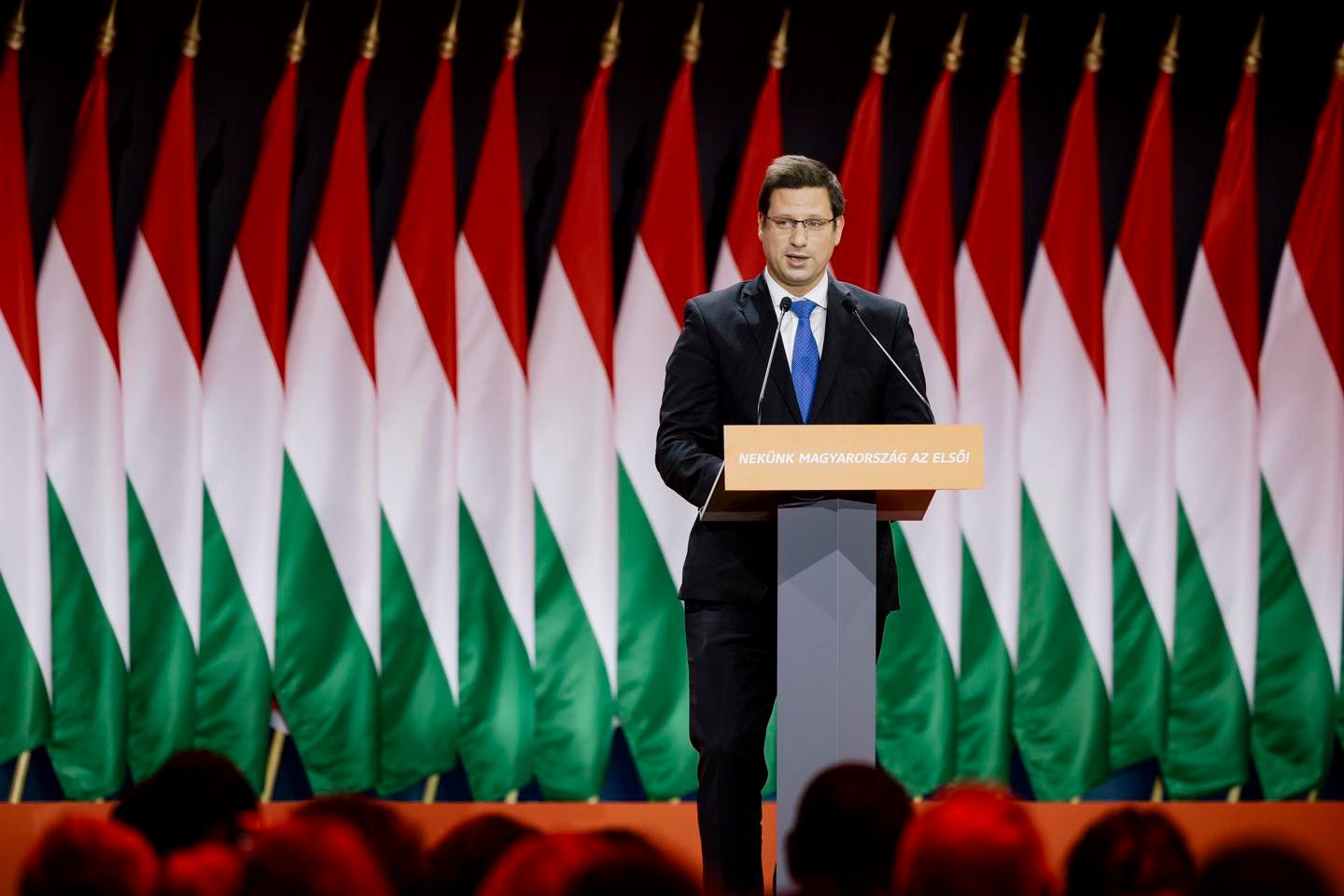
The opposition LMP has called on the government to raise the wages of teachers and other public education employees.
The party’s deputy group leader, Máté Kanász-Nagy, said that Gergely Gulyás, the head of the Prime Minister’s Office, “spread uncertainty and pointed the finger at Brussels again” when he told commercial media outlet atv.hu at the end of last week that the government “will do everything it can” to ensure a 32 percent wage hike, but that it depended on “technical approval” by the European Commission.
The wage hike depends only on the government’s will, Kanász-Nagy told a press conference on Wednesday.
“It looks like the cabinet is looking for ways to back out of the wage hike”, despite the interior ministry’s statement that teachers would receive a 32 percent raise from 1 January, he said.
He called on the government to clarify whether teachers’ wages will rise, and by how much.
Read also:
Significant teacher payrise in Hungary next year

Teachers’ pay will rise by 32.2 percent on average from January 1, 2024, the interior ministry said on Friday.
Interns’ monthly remuneration will rise from 400,000 forints (EUR 1,050) to 528,800 forints, while pay grade I teachers will get at least 538,000 forints and pay grade II teachers no less than 555,000 forints per month. Teachers in the master pay grade will get at least 630,000 forints a month and research teachers 750,000 forints.
Read also:
Hungarian opposition calls on govt to raise teachers’ wages from Jan 1

Opposition LMP has called on the government to raise the wages of teachers to HUF 700,000 (EUR 1,800) from Jan 1 “as promised by the head of the Prime Minister’s Office”.
Antal Csárdi told a press conference on Wednesday that there was “nothing left to wait for” now that the European Commission has released funding for Hungary.
He said his party had submitted a question to the interior minister querying whether teachers would receive a wage hike given the extraordinary restructuring of funds or if the budget would be amended in parliament’s spring session. He added that LMP also wanted to know when the amendment would enter into effect.
Csárdi said the 10 percent pay rise teachers are set to receive from January would still mean that their real wages would decline.
“The ball is now in the government’s court,” he said, noting that it had to raise teachers’ wages which would later be covered by the EU.
Read also:
Govt launching support for intl exchange programmes in higher education

The government is launching a HUF 10 billion forint (EUR 26m) scheme supporting international exchanges at Hungarian universities run by public foundations, an education official said on Wednesday.
Funding will be available next year for students, lecturers and researchers of foundational universities so they can connect with the world’s leading universities, Balázs Hankó, the state secretary for higher education of the ministry of culture and innovation, told a joint press conference of the ministry and its strategic partner, the Tempus Public Foundation.
He said the government had revamped higher education in recent years and instituted a turnaround in competitiveness, adding that 12 Hungarian universities are now in the top 5 percent of the world’s best higher education institutions.
At least one Hungarian university should be among the top 100 universities by 2030 and at least three should be among the top 100 European higher education institutions, he added.
Currently 10,000 students, teachers and researchers participate in exchange programmes, and with the new government scheme dubbed Pannonia Program, by 2030 this is expected to reach 20,000 people each year. Next year, the scheme will support 8,000 students, teachers and researchers. The scheme also provides a monthly scholarship of worth HUF 350,000-500,000.
Fully 20 percent of the funds, 2 billion forints, will be used to help Hungarian students, teachers and researchers get into one of the world’s 250 best universities, he added.
Universities can lodge applications between Jan 15 and 29, Kűroly Czibere, the chairman of the Tempus Public Foundation’s board of trustees, said.
Read also:
Hungary’s first autism learning centre opens its doors

A complex of a model home and education centre for autistic people and their families opened in Budapest’s 13th district on Tuesday.
Anikó Nagy, director of the National Heim Pal Paediatric Institute, welcomed the inauguration of the new facility. She said the model home aimed to provide an “ideal space” for families with an autistic member. The conference area of the facility will offer training courses for parents as well as conferences for experts in the field, she added.
Szilvia Szijjártó-Nagy, the head of the Together for Autistic People Foundation, said her foundation had collected donations for several years to build an Autistic Model House, which opened in the spring of last year, and the new complex. She said autism affected one in 15 Hungarian families, adding that “a multitude of people around us are struggling to support an autistic family member, meeting their special needs in everyday situations.” The foundation also aims to educate society about autism, she added.
István Szeleczki, a senior therapist at the Autistic Model House Diagnostic and Therapy Centre, said the model home was designed to “present an ideal environment in which tension and anxiety could be reduced so that both children and parents have a relaxed time.” The new facility offers families an opportunity to teach autistic children how to use everyday appliances in their home. Families applying for a course will move into the facility for a week, and receive counselling by experts, he added.
Since the Autistic Model House was opened in 2002, it has received over 1,400 requests for a diagnosis and has offered treatment to nearly 900 autistic children. Currently, 70 children are provided a complex therapy.
Photos of the model home and education centre can be found HERE.
Read also:
International Youth Science Olympiad 2023: gold and silver medals for Hungarians
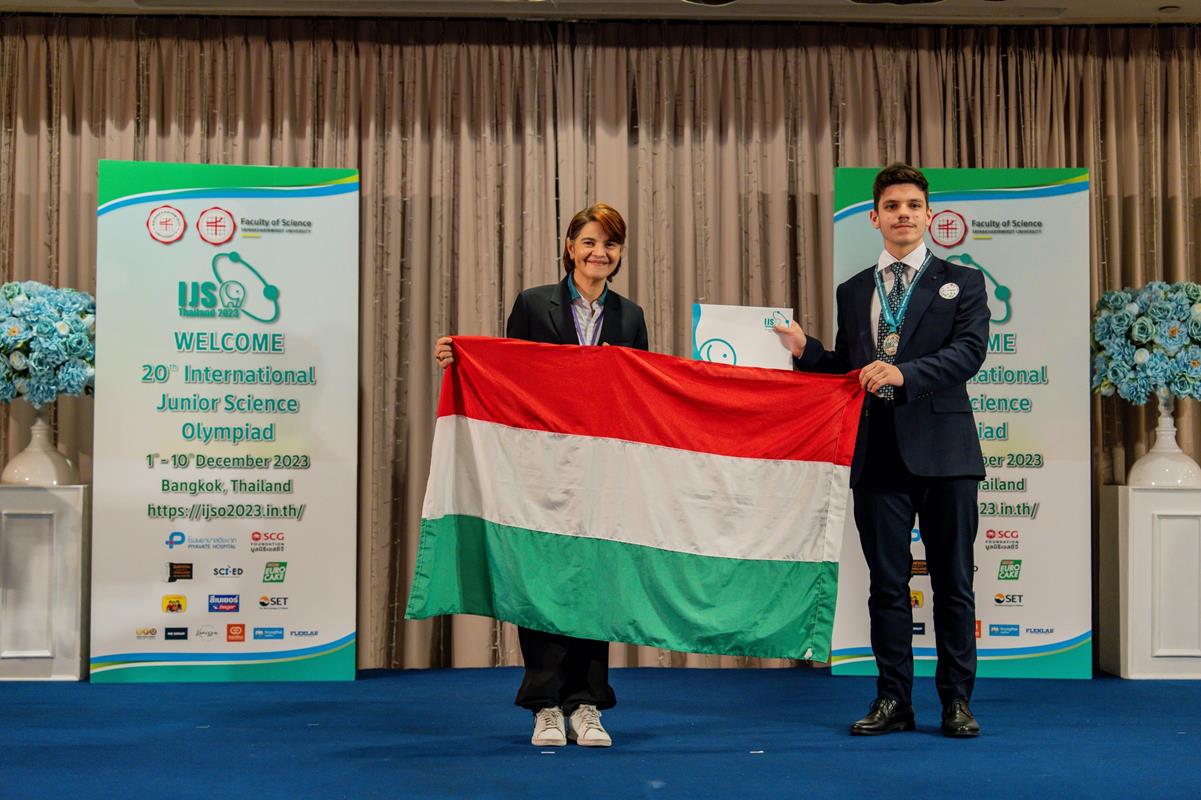
The Hungarian team won one gold and five silver medals at the 20th International Junior Science Olympiad (IJSO) held for under-16s in Bangkok, Thailand, between December 1 and 10, the organisers said on Monday.
Artúr Bíró, a 10th-grade student of the Apáczai Csere János Secondary School in Budapest, won gold, and the other members of the team, Luca Nagy and Balázs Ábel Bauer of the RÉvai Miklós Secondary School in Győr, Tamas István Bense and Zoltán László Szepesi of the Eötvös József Secondary School in Budapest, and János Dániel Simon of Apáczai have won silver medals.
The students were prepared by teachers of Apáczai, Attila Gyertyán, Bence Varga, Attila Villányi and Ádám Papp.
The Hungarian team ranked 7th in the competition, tied with Australia.
The IJSO competition drew 304 students from 54 countries this year.
As we wrote before, Hungarian team wins two silver medals at Central European Olympiad in Informatics for Students, details here.
Also we reported earlier, Hungarian student robotics team wins silver in Singapore
How are Hungarian students performing? PISA study results out

The latest PISA study showed no significant change in Hungarian students’ reading and mathematics skills compared with the previous, 2018 results, even as the performance of other OECD countries fell, the head of the Hungarian Education Office (OH) said on Tuesday.
The 2022 PISA study, released on Tuesday, showed the results of tests from 81 countries, Sándor Brassói said.
The reading, mathematics and science skills of 15-year-olds fell sharply in countries long considered as having exemplary education systems such as Iceland, Norway, the Netherlands and Finland, he said.
Meanwhile, Hungary maintained — and slightly improved — those skills despite the pandemic and the difficult economic situation, Brassói said. Students have taken the transfer to digital education in stride, and the number of weak-performing students fell slightly, he added.
Gábor Kristóf Velkey, the head of public education analysis at OH, said the 2022 survey had seen the most participants so far, 37 OECD members and 44 partner states. In Hungary, 6,198 students of 270 public education institutes completed the tests, he added.
In maths, Hungarian students scored an average of 473 points, compared with the OECD average of 472 points, Velkey said. The OECD average in science was 485 points, and Hungarians scored an average of 486; in reading, the OECD average was 476 point, and the Hungarian 473 points, he said.
Velkey noted that the study places individual results of proficiency levels to indicate larger-scale trends. The EU’s goal is to push the ratio of the students not reaching proficiency level 2 below 15 percent.
In maths, 68.9 percent of students reached that level on average, while 70.5 percent of Hungarian students did so, Velkey said. In reading, 73.7 percent of children reached proficiency level 2 on average, and 74.1 percent in Hungary. In science, the same ratio was 75.5 percent in OECD countries and 77.1 percent in Hungary.
Hungary also scored above average considering its GDP-per-capita ratio, Brassói added.
Further, 81 percent of Hungarian children said they made friends easily and that they felt they belonged to a community, compared with 76 percent on average, he said.
The general satisfaction of children with their lives fell since the last study, with 18 percent now saying they were dissatisfied with their lives, up from 16 percent in 2018, Brassói said. In Hungary, the same indicator fell from 16 percent in 2018 to 13 percent in 2022, he said.
The number of children who said they felt unsafe on their way to school or in the classroom was 7 percent and 5 percent, respectively, a few points below the OECD average, he added.
Even though these results are considered good, never before have Hungarian students scored as low on the PISA tests as they did last year, and only in 2015 did they score so low in reading comprehension.
Pass your next Certification Exam by Cert bolt
Read also:
10% pay raise for Hungarian teachers in January

Sándor Pintér, the interior minister, told lawmakers on Monday that a 10 percent pay raise for teachers from January was “definitely” in the pipeline.
The aim is for Hungarian children to be educationally competitive in the European Union, and to achieve this it was essential to increase the social recognition of teachers and boost their pay as part of a differentiated, performance-based salary system.
The law on the new teacher’s career model has been designed with this in mind, Pintér said at his annual hearing before the parliament’s culture committee.
He said the new public education employment law had the backing of “most teachers”, with 70 percent agreeing that performance should be a factor when setting pay. Not every teacher’s salary will increase, he added.
Teachers who work in regions that are striving to close the gap with richer ones may be set 20 percent higher, in order to encourage teachers to work in more deprived areas.
With a view to reducing administrative burdens, self-evaluation has been scrapped, while principals now have carte blanche to extend the winter or spring break to take into account how tired students are, he said. Also, schools will stay open for an extra hour, until 6pm.
Regarding digitalizing the education system, Pintér said 55,000 laptops have already been distributed to teachers and 65,000 to students, and another 140,000 will be issued to students this year. Also, smart textbooks with digital content will be available and a digital log of grades and other information pertinent to the student must be accessible for parents online, he added.
In the 2022-2023 year, 10 billion forints was spent on the development of school digital networks, with Wi-Fi and smart classrooms established in 180 schools.
The minister said it should be examined whether criticisms of the national core curriculum were justified, and this would be treated as a central issue.
To ensure harmony between kindergarten, elementary school, secondary school and further education, a government education committee will be established under the leadership of the prime minister, Pintér said.
Meanwhile, the minister told lawmakers that 5,200 Ukrainian children attending school in Hungary were also provided with school materials.
Pintér said schools had maintained their financial stability and none were indebted.
Read also:
- Hungarian name on Austria’s newest university building – UPDATED
- Hungarian cities among the 50 Best Student Cities in the World in 2023
Orbán cabinet: Hungarian degree counts on labour market
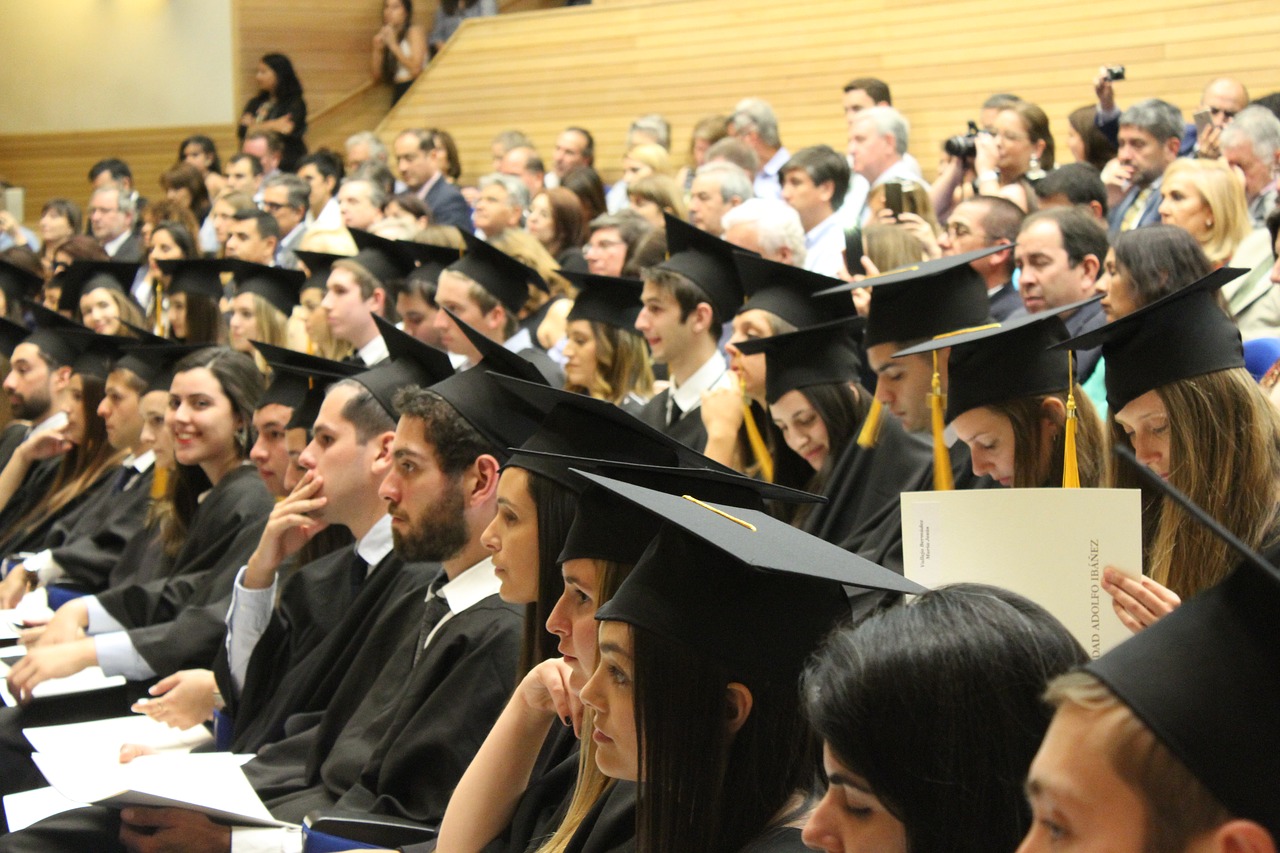
A Hungarian degree leads to a wage advantage, with graduates earning 1.3 times the national average wage just 42 days after graduating and 1.7 times after seven years, Balázs Hankó, the state secretary for higher education, said on Monday.
Graduates typically find a job quickly and eight out of ten start working in a more senior position, he said.
Also, graduates tend to stay to work in the same region where they studied, with six out of ten staying put.
Engineering graduates earn double the national average wage 7.5 years after graduation, while for IT professionals the premium is 2.5-fold. Medical graduates, too, often find a job immediately and receive twice the average salary, he said.
Hanko noted that the higher education admissions system is being revamped this year, giving universities more freedom to decide the weighting of school exam results and allowing them to set their own entrance exams.
He said Hungary’s higher education system had witnessed a turnaround in terms of competitiveness, and admissions were up 33 percent this year, with 42,000 foreign students studying at Hungarian universities and 5,000 getting internships abroad.
Policymaking has skewed towards matching undergraduate courses to the market, while a graduate career tracking system gives a good picture of how valuable particular Hungarian degrees are, he added.
As we wrote a few days ago, Hungarian cities are among the 50 Best Student Cities in the World in 2023, details HERE.
read also: Tempus Foundation to launch HUF 10 bn int’l relations scheme for ‘reform’ unis
Ukraine to restore Hungarian minority’s language rights

The Ukrainian Prime Minister Denys Shmyhal has proposed a new draft law that would improve the situation of minorities living in Ukraine. This could mean a lot in the coming months, especially now with the upcoming meeting between the European Union and Ukraine.
The new draft would grant more lenient rights to the education sector and would put an end to repressing the use of mother tongues among minorities.
The previous case
There has already been talk of an older draft law a while ago that would cause an even bigger rupture between Ukraine and Hungary. This older draft would limit the usage of minorities’ mother tongue and gradually increase the percentage of Ukrainian classes taught in minority schools, writes Telex.
This original draft would regulate the amount of Ukrainian classes in ascending order. This means that only in the first four classes can the mother tongue of the minority be spoken. After that, every four years, the number of Ukrainian class hours were to be increased by 20%. This means that by graduation, minority students could be studying in Ukrainian 60% of the time spent in school. The old law was mainly directed against the use of Russian, but it harmed the minorities greatly in the process.
The minority schools were all in danger of language restriction, which of course included Hungarian schools too. This restriction was one of the focal reasons of the Hungarian veto against Ukraine, which you can read more about HERE. Now, with the new draft in the motion, things have a chance of changing.
The new draft law
The new draft law would essentially eliminate some passages of the old draft. These old passages, according to the Hungarian government, make it impossible for the Hungarian community in Transcarpathia to learn in their mother tongue or use their mother tongue in general. The new draft law ensures that minorities can learn in their mother tongues until graduation.
There’s another new addition that the amendments specify, which is that the proposed provisions only apply to minorities that speak any official EU language. Thus excluding the Russian language, while improving relations with the other minorities that were badly affected by the previous law. The sanctioning of Russian is a goal for the Ukrainian government since 2014 and even more so since the start of the war.
What’s next?
Considering the war, Ukraine was granted candidate status last year on a proposal from the European Commission. Hungarian foreign minister Péter Szijjártó said on the issue that “Hungary will never be able to support Ukraine’s transatlantic and European integration as long as Hungarian schools in Transcarpathia are at risk.” However, with the new draft law, all of the 71 Transcarpathian Hungarian speaking schools could keep teaching students in Hungarian until they graduate. In the long term, this means Ukraine is one step closer to the hearts of Hungarians and also to joining the EU.
Read more about Hungarian relations to Ukraine HERE.
Hungarian university’s programmes among the world’s best

5,000 institutions have been assessed selected from 25,000 universities around the world, ranking training programmes of 1,900 of them, with three BME programmes being in the top 500.
The results of the Global Ranking of Academic Subjects (GRAS) 2023 discipline rankings are now available. This year, the Budapest University of Technology and Economics (BME) has been included in one of the world’s top rankings in three disciplines (link to the page outlining the data of BME). In this year’s professional ranking of the world’s top 1,900 universities, BME’s Mechanical Engineering programme has been ranked (301-400) alongside the Electrical & Electronic Engineering programme (401-500). The Mathematics programme of BME was again ranked among the 201-300 best training programmes this year, bme.hu wrote.
To compile the ranking, only the top 5,000 institutions (from 104 countries) out of around 25,000 universities worldwide have been considered, and only 1,900 of these have been included in the ranking. Universities have been analysed in five categories – natural sciences, technical sciences, life sciences, medical sciences and social sciences – in 55 scientific disciplines. The discipline rankings are available at the ShanghaiRanking GRAS website.

BME was also highly ranked in the QS ranking of fields of expertise published in March 2023. The organisation, which assessed 20,000 institutions, ranked BME 224th worldwide in the Engineering and Technology category. Quacquarelli Symonds published QS Sustainability 2023, its new sustainability rankings in November 2022. BME ranked high on this one too: The university was ranked 198th as the best Hungarian institution in Environmental Impact and 23rd among the 700 institutions ranked in the Sustainable Institution Indicator. In June this year, the university moved up 100 places in the QS world rankings to 741-750th place.
Read also:
- Why are there so many Norwegians in Hungary? – Read the answer HERE
- One of Hungary’s largest universities to expand with a new campus in the city centre – check out the details in THIS article
ARWU, one of the world’s leading global rankings of higher education, has been compiled by the organization ShanghaiRanking Consultancy since 2009. BME was among the four Hungarian universities listed in the world ranking again this year. The discipline ranking, GRAS, has been published since 2017 and has ranked BME’s Mechanical Engineering and Mathematics programmes since the beginning. The data for the global list of thousands and the discipline rankings are obtained from Web of Science and are ranked according to criteria such as the number of quality (Q1) scientific publications, citation rate, the proportion of co-authored publications with foreign co-authors, the number of publications in leading journals or presented at major conferences, and the number of researchers recognised with major awards.
Scholarships offered to strengthen ties with Hungarians in southern hemisphere

The Prime Minister’s Office department for Hungarian communities abroad is offering scholarships to strengthen ties with diaspora Hungarians in the southern hemisphere, the office said on Tuesday.
The scholarships offered under the arrangements of the Sándor Kőrösi Csoma scheme launched this year are offered to Hungarians aged above 18, without a criminal record, with at least secondary school education and fluent English language skills, the statement said. Conversational knowledge in the language of the destination country is also desirable, it added.
The destination countries are Argentina, Brazil, Chile, Columbia, Paraguay, Uruguay, Venezuela, South Africa, Australia and New Zealand, and the planned timeframe is between 15 February and 15 November, 2024, the office said.
The four areas covered by the programme include scouting activities, preserving traditions, teaching and education, and community, sport, media and cultural activities.
Applications by individuals and the receiving organisations can be submitted at www.korosiprogram.hu until 13 December, 2023.
Read also:
Hungarians rank surprisingly high in English proficiency

The recently unveiled English Proficiency Index has not only reaffirmed the Netherlands’ reign in English proficiency, but has also brought attention to Hungary’s noteworthy position.
Hungary’s respected position in English proficiency
According to Player.hu Hungarians are surprisingly high in the ranking of English learners. The EF EPI is the world’s largest ranking of countries and regions by English skills based on test results of 2.2 million adults in 113 countries and regions. Securing a place in the “High proficiency” category and standing 17th overall among 113 countries, Hungary’s language achievements are impressive. Notably, within Hungary, the city of Pécs emerged as a leading force in English proficiency. Considering Hungary’s placement among a diverse range of countries, it is indeed a commendable achievement. With three lower proficiency categories encompassing more populous nations, Hungary’s standing is a testament to its commitment to mastering the English language.
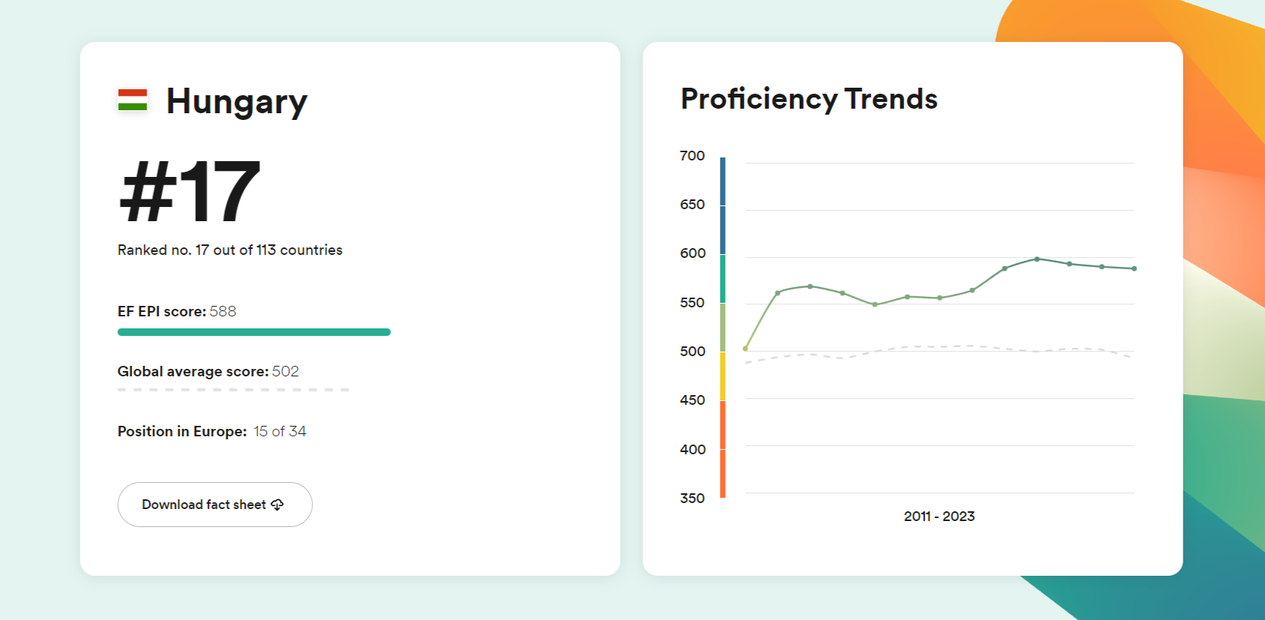
The Dutch dominance
While the Netherlands continues to dominate the English proficiency rankings, the reasons behind their success may not be immediately apparent. The Dutch Review has outlined some compelling factors, with one surprising revelation: no dubbing of films or TV series. In the Netherlands, English is ingrained in the population from childhood, as they rely on subtitles rather than dubbing. This unique approach contributes to a natural and early exposure to the language.
Other factors behind Dutch proficiency
Interestingly, the absence of dubbing in the Netherlands leads to an unintended consequence: many Dutch individuals become avid fans of long American TV series. While this may seem like a minor side effect, it inadvertently enhances their English language skills, as they become accustomed to the language through extensive viewing. Furthermore, their global thinking, driven by a pragmatic and business-oriented approach, is a key factor.
With a population of 17 million spread over 41,500 km², the Dutch understand the importance of a confident command of English in the global market. Lastly, the linguistic connection between English and Dutch, both belonging to the Germanic group of the Indo-European language family, simplifies the learning process. The similarities provide an advantage, making it easier for the Dutch to grasp English concepts and expressions.
In conclusion, Hungary’s surprising success in English proficiency and the Netherlands’ continued dominance underscore the diverse factors that contribute to a country’s language skills. Whether through historical experiences, unique cultural practices, or linguistic connections, these rankings offer valuable insights into the dynamics of language acquisition on a global scale. You can read more of our articles about languages HERE.
Hungarian student discount application now available for international students!

Diverzum, Hungary’s leading student discount network, has unveiled its application in English, available on both iOS and Android platforms. This pivotal move is tailored to enhance the lives of the burgeoning community of foreign students in Hungary.
Over the past two years Diverzum has swiftly risen to prominence as Hungary’s go-to platform for student discounts. Boasting over 170,000 users and partnerships with more than 70 esteemed brands, the application offers a diverse range of discounts from household names like Samsung, foodora, Don Pepe, Ecipő, ShareNow, New Balance, Myprotein, Notino, and Bubbles Laundry.
At its core, Diverzum is designed with simplicity and user-friendliness in mind. Discount seekers register on the platform and verify their student status using their student ID number or university email address. Once verified, they gain access to a myriad of discounts tailored to their needs. The app’s intuitive interface ensures that students can effortlessly navigate through offers, making savings a seamless part of their daily lives. To ensure inclusivity, Diverzum is completely free for users and foreign students are no exception.
Diverzum was founded by Fanni Gyarmati and Miklós László, two high school friends turned business partners. Their journey, marked by international educational experiences with Miklós attending the University of Exeter and Fanni participating in a Norwegian Erasmus program, instilled in them a vision to bridge the student discount gap between Hungary and Western Europe. Their passion and commitment to this vision were highlighted on the renowned TV show “Cápák között” (Shark Tank), where they presented Diverzum’s innovative approach and its potential to revolutionize student life in Hungary.
The introduction of the English version is more than just an app update; it’s a testament to Diverzum’s commitment to inclusivity and understanding the diverse tapestry of students that make up Hungary’s academic landscape. It’s about recognizing each student’s unique journey, from the late-night study sessions to the joy of discovering a new culture, and ensuring that every step is accompanied by the benefits they deserve.
Read more about studying in Hungary below:
Large crowd gathered at the anti-government demonstration in Budapest

Civil organisations and teacher and student movements held a protest demanding freedom in education in Budapest on Monday.
The protesters gathered in Heroes’ Square and also demanded higher wages for teachers before marching in streets around Andrassy Street and down to Oktogon.
The demonstrators waving national, European Union and Ukrainian flags stopped outside Kölcsey Ferenc High School, from which five teachers were forced to quit their jobs last September. Here, Bence Tóth related how he left public education after discovering that his colleagues had been sacked.
He insisted that the government was uninterested in finding a solution to problems afflicting public education, adding that Sándor Pintér, the minister of interior who is also responsible for education, had conceded that he did not understand the sector.
On the way to Oktogon, the marchers stopped in front of the Russian embassy building and tied ribbons in the national colours on the embassy fence.
Karácsony: ‘We won’t compromise on Hungary becoming a republic’
Addressing a demonstration on the anniversary of Hungary’s 1956 uprising in downtown Budapest on Monday, Gergely Karácsony, the city’s mayor, said: “We won’t compromise on our country one day becoming a republic, the common home of free and equal citizens.”
At the event held at Oktogon, Karácsony vowed to form an alliance of the opposition parties in Budapest for next year’s local elections.
“October 23 is the celebration of the republic, of the republic born out of the revolution of 1956, of the Third Hungarian Republic established on October 23, 1989, and of the Fourth Republic we carry in our hearts,” Karácsony said.
“Living in a republic means striving to treat each other well,” the mayor said, adding this was the kind of homeland the heroes of 1956 had wanted.
As we wrote before, the Tanítanék Movement was awarded EP’s European Citizens Prize, details HERE.
As we wrote today, Orbán: ‘Moscow a tragedy; Brussels bad contemporary parody’ – UPDATE
These are the best places to live in Hungary in 2023

A ranking has been produced showing where the best places to live in Hungary in 2023 are. Based on several criteria, 175 areas were ranked.
Ranked by criteria
MBH Mortgage Bank’s Livability Ranking is based on several criteria. Areas were assessed based on education, health, culture, crime, labour market, shopping opportunities and housing affordability.
The 174 districts of the country and Budapest were examined from the perspective of the people living there. Perhaps unsurprisingly, the Hungarian capital was again significantly ahead of second place. However, it was a close race for the second place.
Six areas that were not in the top ten last year made it this year. This includes Pécs and its surroundings, which ranked third in 2023. Debrecen is ranked fourth and Veszprém fifth. Szeged, Budakeszi, Győr and Dunakeszi are also in the top ten.
It varies which municipalities are strong in which criteria. Budakeszi stands out because of its labour market, while Bácsalmás and its surroundings are strong because of low crime. The larger towns are outstanding for infrastructure, education and health.
Lowest rated areas
The areas around Érd, Bóly, Kisbér, Pécsvárad, Tata and Mórahalom were out of the top rankings.
The northeastern parts of Hungary have the lowest scores based on the criteria assessed. Surprisingly, the South Transdanubian region, including the area around Lake Balaton, also performs poorly. This can be explained by the fact that housing is expensive on the shores of Lake Balaton, and the labour market and education are not in a good position.
Budapest is also in first place in terms of county seats, followed by Békéscsaba, Nyíregyháza and Kecskemét, infostart.hu reports.
The livability index of each region of the country is a key determinant of housing demand in that area. As the largest Hungarian-owned bank in Hungary, MBH Bank attaches great importance to knowing its customers, knowing their needs and being able to make decisions quickly on key business issues at a local level, which is why MBH Mortgage Bank experts are conducting their third survey of the opportunities offered by the 174 districts of the country and Budapest for people living in these areas, based on education, health, culture, crime, the labour market, shopping opportunities and housing affordability, according to the public release.
CHART: Hungarian universities among the best in three world rankings

The largest publisher of rankings has now released all complex global rankings in higher education. Of universities in Hungary, BME is among the best in all three rankings.
BME is the only Hungarian university which is equally included in the international higher education rankings, ARWU, QS and THE and could not only maintain its position in the world rankings published in 2023 compared to previous years but moved up 100 places in QS, bme.hu, the university’s official website, wrote.
Colour codes:
- Green: moved up from last year or was included in the rankings
- Red: moved down from last year
- White: maintained rank
- Grey: not ranked among the best or removed from the rankings
* Not included in QS as it specialises in one discipline.
A variety of methodologies concerning universities
ARWU considers six indicators, which are the percentage of alumni or staff winning Nobel Prizes and Fields Medals (10 % and 20 % respectively), the publication performance of staff (20 %), the percentage of papers published in Nature and Science (20 %) the number of highly cited researchers (20 %), the per capita academic performance of an institution, which is calculated based on the first five indicators (10 %).
QS determines the rank by considering academic reputation (30 %), employer reputation (15 %), citations per faculty (20 %), faculty student ratio (10 %), international faculty ratio (5 %), international students ratio (5 %), international research network (5 %), employment outcomes (5%) and its sustainability indicator (5 %), which is based on the QS Sustainability Rankings and was first published last year.
The THE rankings use five indicators including teaching (29.5 %), research environment (29 %), research quality (30 %), international outlook (7.5 %) and industry (4 %).
Tanítanék Movement awarded EP’s European Citizens Prize
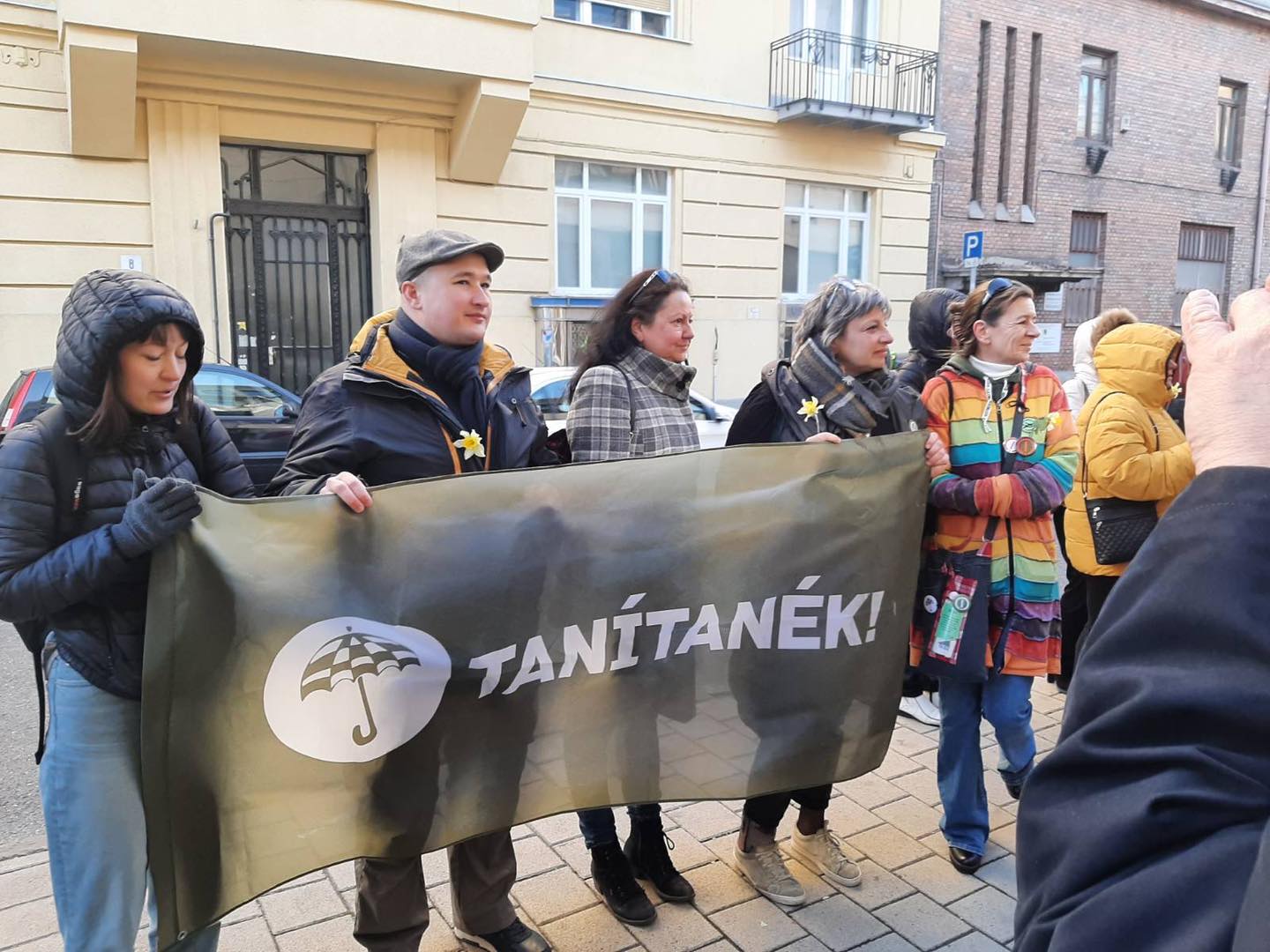
Hungary’s Tanítanék Movement, a grouping of teachers, has been awarded the European Parliament’s European Citizens Prize 2023, and the movement’s leading light, Katalin Törley, received the prize on behalf of the organisation on Friday in Budapest.
The Tanítanék Movement was awarded for “standing up for the rights and values laid down in the EU Charter of Fundamental Rights”, Andrea Lövei, the head of the European Parliament’s liaison office in Budapest, said, addressing the ceremony on Friday. It was also recognised for working to improve Hungary’s education system and the position of teachers, she added.
Törley said in her speech that the foundations of European integration had been laid by people who believed in cooperation and the importance of mutual understanding. Not only should cross-border cooperation and dialogue be encouraged in certain countries, but cooperation between the borders should be, too, she added.
Common European values are only possible if education systems are free, inclusive, opportunity-creating, traditional and innovative, she said.
She said the movement had been established by “civilians who are proud of their profession”, and the prize belonged to tens of thousands of teachers who had stood up for quality public education and for a free, democratic country.
As we wrote yesterday, novice teachers in Hungary paid less than 1/5th of annual salary of Danish counterparts, details HERE.
Also we wrote about teacher shortage in Hungary which is much worse than anybody expected, details HERE.






